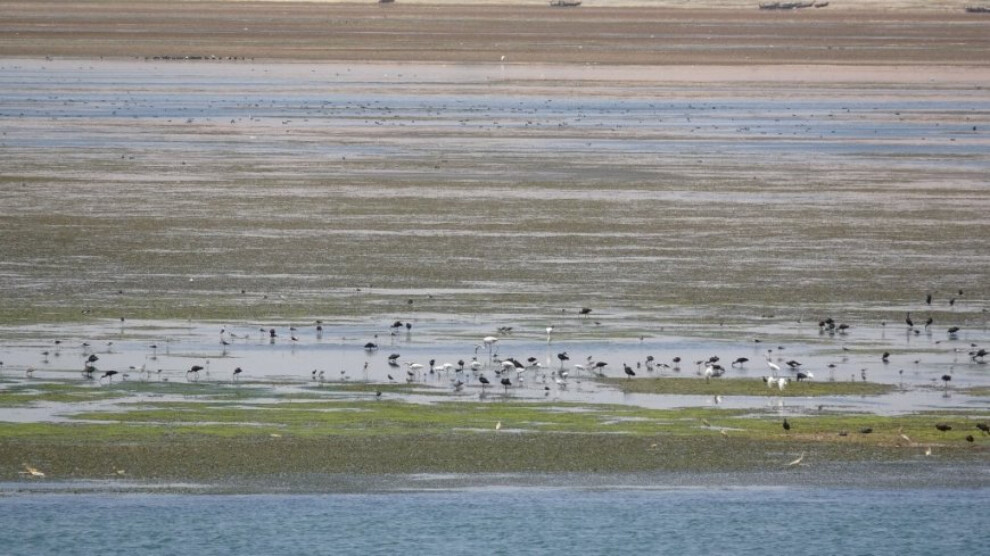Euphrates River's water draining: Drought risk increasing
With the decreasing water levels in the Euphrates River, a major drought risk is emerging in Tabqa. Many drinking water transmission stations have been shut down due to the lack of water.
With the decreasing water levels in the Euphrates River, a major drought risk is emerging in Tabqa. Many drinking water transmission stations have been shut down due to the lack of water.

The water level of the Euphrates River is rapidly decreasing due to the Turkish state's blocking of water flow to Syrian and Iraqi territories. The Energy Council of Northern and Eastern Syria had warned that the water crisis in the Euphrates River would worsen after the water level at the Euphrates Dam dropped by 6 meters.
Despite being located on the banks of the Euphrates River, the people in the Tiwêhina Camp in Tabqa are experiencing a severe water shortage. Ahmad El Casim, a resident of the camp, told ANHA: "The situation is getting worse. Water is cut off for days, and when it comes, it's dirty and undrinkable. We have to buy water, and filling a tank costs 25,000 liras. Those who can't afford it bring water from the lake."
A citizen named Reslan El Ehmed told ANHA: "We buy bottled water to drink, but when the water comes, it's very dirty and undrinkable. We boil it, add chlorine, and leave it in the sun. Despite all this, many people who drink this water have developed kidney diseases."
Another citizen, Matar El Xalid, added: "There are insects and worms in the water, which is why some people have fallen ill and had to be hospitalized. The water has been cut for three days, and today it only came for two hours. Even the public bathrooms haven't been cleaned for days. The water we bring from the river has a terrible smell. We filter it with cloth and boil it, but we can't stand it anymore."
The situation is getting worse
After the El Tinera station in the city of Tabqa went out of service, water was also cut off in the town of El Cirniyê and its 114 surrounding villages. As a result, the situation for people has become even more difficult. The El Cirniyê Water Administration is trying to implement urgent solutions to provide water to the public.
The co-chair of the El Cirniyê Water Administration, Ehmed Cemal, said that this situation has not been experienced since the 1980s, when the Euphrates Dam was built. He added: "Due to the drying of the water, some lands that have been submerged for decades have emerged, and some farmers have started working these lands."
Cemal also noted that two wells at the El-Tenara water station were out of service, which led to a halt in pumping water to the El Cirniyê water station.
Cemal warned that the continued water scarcity would lead to a catastrophe for people, animals, and plants, and called on humanitarian aid organizations to provide them with larger pumps. He emphasized, "The real solution is for Turkey to release the water; otherwise, the situation will lead to a disaster."
Alert in Raqqa, Deir Ezzor and Aleppo
The decrease in the water level of the Euphrates River is not only affecting Tabqa but also Raqqa, Deir Ezzor, Aleppo, and its countryside. Therefore, it could lead to a regional disaster along the riverbanks extending as far as Iraq. El Taha, the co-chair of the Tebqa Municipalities Union, announced that most of the drinking water pumps in the Ayid, El Cirniyê, El Kerîn, El Cerafat, and El Buasî areas have broken down, and the remaining ones are expected to fail within a few days.
El Taha pointed out that the decreasing water has turned into stagnant pools, causing bacterial growth, and that the lack of water has also halted electricity production. He mentioned that it has become more difficult to supply electricity to the water stations.